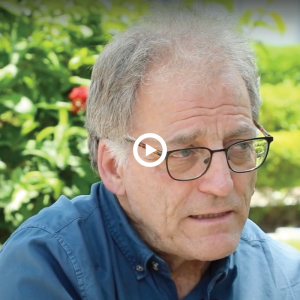Mark Bradbury, Director of the Rift Valley Institute, shares the origin story of the Cross-Border Local Research Network and its integration into the broader XCEPT programme. He reflects on why the initiative began — recognising the value of researchers embedded in borderland regions of countries like South Sudan, Ethiopia and Somalia.
He highlights the programme’s long-term commitment to supporting local researchers by developing their methodological skills, building access to remote regions and encouraging the creation of grounded, relevant evidence. One area that stood out for him was the growing visibility of gender in their work — a topic not always prominent in research across the region.
Looking ahead, Bradbury speaks to the challenge of maintaining and growing this community of local researchers. As the XCEPT programme evolves, the focus is on sustaining this network, deepening their capacity and supporting the next generation of researchers across conflict-affected contexts.

EWNET Writes: Writing Workshop Session I
The Ethiopian Women Researchers Network (EWNET) inaugural writing workshop series aims to not only provide women researchers with uninterrupted time for their scholarly projects, but



